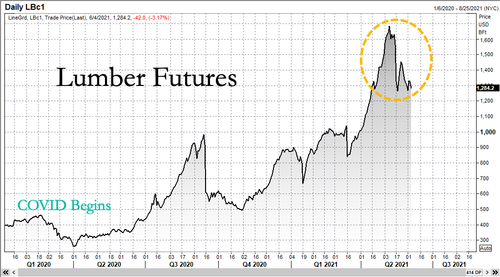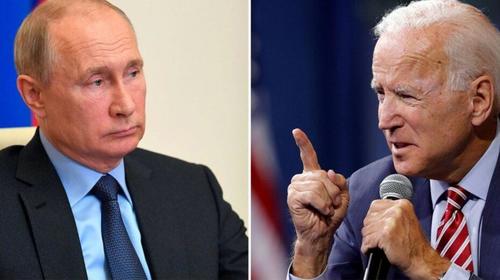Is Facebook a monopoly? Should Amazon be forced to do business with the new social media platform Parler? Is Apple harming its customers—and maybe democracy—by installing the Safari web browser on iPhones? Did Google bully people into using its search engine?
All of these questions have been raised in recent U.S. antitrust probes and lawsuits. The queries are unlikely to result in widespread improvements to the welfare of tech consumers—which, these days, includes just about everyone. Yet some of the country’s top prosecutors, pundits, bureaucrats, and elected officials have made them a priority, often in open defiance of a longstanding principle that says ordinary customers should be at the center of conversations about antitrust.
Under Presidents Donald Trump and Joe Biden, a bipartisan brigade of policy makers, attorneys general, and activist experts has become committed to excoriating America’s most popular tech companies as evil monopolists, launching complicated claims against them in court, and working to change laws to make these endeavors go down more smoothly.
The motivation for this bipartisan push can be found in partisan politics. For progressive Democrats, it isn’t really about tech companies. For populist Republicans, it’s not really about monopoly power. Instead, in both cases, antitrust has become a broad cover for pursuing pre-existing political agendas. Antitrust law—long understood as a blunt instrument to be used sparingly in cases where consumer interests are in serious danger—is being revived and reimagined by today’s antitrust crusaders as a multitool for prosecuting the public case against Big Tech and taking big or influential companies down a peg.
The new antitrust push is an attempt to expand the control that federal overseers wield over the U.S. business landscape, with little attention paid to what’s good for average Americans. Yet if history is any indication, consumers are the ones who stand to lose.
The GOP War on Big Tech
Parler was the last straw, some said.
A Twitter-esque social network for the MAGA right, it was supposed to be an antidote to the waning culture of free-speech permissiveness on other popular digital platforms and the overwhelmingly liberal bent many conservatives perceived on them. Parler “gets what free speech is all about,” tweeted Sen. Ted Cruz (R–Texas) last June. It’s “built on respect for privacy and personal data, free speech, free markets, and ethical, transparent corporate policy,” the Parler website claims.
But after Trump fans stormed the Capitol on January 6, tech companies took a beating for supposedly allowing the extremism and disinformation that sparked the riot to flourish. Right-leaning platforms like Parler bore the brunt of the blame.
That blame was both deserved and undeserved, depending on how you look at it. Yes, Parler provided a forum for posts planning the January 6 protest that would take a dark turn, as well as for content livestreamed from rioters, threats against Democrats, and promises of further action. But Parler was far from alone in this, and it may not even have been home to the worst of it.
Still, the site’s high visibility as a safe space for Trump supporters made it an easy target. Soon, Apple and Google stopped making Parler downloads available in their respective app stores. (Apple has since let Parler return.) Amazon Web Services (AWS)—the branch of the retail giant that provides cloud computing services—suspended Parler’s account, effectively disappearing it from the internet temporarily.
In response, Parler sued. Among its allegations was that Amazon had violated Section 1 of the Sherman Antitrust Act of 1890. The decision was “designed to reduce competition in the microblogging services market to the benefit of Twitter,” according to Parler’s January 2021 complaint. (Why Amazon would want to boost Twitter is unclear.)
Many Republicans cheered the lawsuit on. Parler, the story went, had been taken down by the left-leaning forces of Big Tech, which feared Parler’s power as a conservative competitor. The site was deployed as a case study in the dangerous power that technology companies allegedly can wield over private speech.
Yet the story wasn’t so simple. Before long, Parler found a new web hosting provider, Epik, which also hosts the right-leaning network Gab. In the end, Parler wasn’t disappeared by jealous competitors with absolute power over online speech. And it didn’t need the government to force Amazon into a business relationship with it. It simply found a new online home, one better aligned with its values.
Republicans held up Parler’s lawsuit against Amazon as an illustration of why antitrust is a useful corrective to the power of tech behemoths. Instead, it showed that competition is alive and well in the tech sector. But it was also a telling indicator of the way that the politics of antitrust have evolved.
Not long ago, it would have been odd to find Republicans backing Parler’s dubious antitrust claims. After all, Parler’s argument was that the government should order Amazon to do business with a company it didn’t want to associate with. It was an argument for government force—not a free market but one engineered by authorities to achieve a specific desired outcome.
Historically, Republicans have been reluctant to support such action. Consider the fights put up in recent years over mandates that businesses provide services for same-sex weddings or employee health insurance plans that cover contraception. But tech companies have come to occupy a central place in the culture wars, with many users convinced that Twitter, Google, Facebook, and their ilk are biased against conservatives. In response, they have come to support legislative and regulatory solutions that are both wildly out of proportion and poorly targeted to the particular problems they claim to have identified. In addition, many calls for antitrust action against Big Tech are premised on notions about the law that are simply wrong.
One misguided proposal from the right is to overhaul or demolish the liability shield law Section 230, which says the law shouldn’t treat computer service providers as the speakers of user-created content. But using antitrust law against tech companies has also become a popular play. And in conservative anti-tech discourse, the two have often become intertwined. Tucker Carlson, for example, has wrongly claimed on his Fox News show that antitrust regulators have the power to change Section 230.
The conservative case against Big Tech frequently seems to be divorced from any meaningful sense of how antitrust law works. While grilling tech CEOs during a congressional hearing last summer, Rep. Matt Gaetz (R–Fla.) admonished YouTube for taking down a video about hydroxychloroquine curing COVID-19. Rep. David Cicilline (D–R.I.), notably, criticized the company for not doing so more quickly. But the First Amendment—not antitrust law—governs decisions about speech (and means that with some broad exceptions, private actors can allow or suppress whatever types of speech they like on their own web property).
Sen. Josh Hawley (R–Mo.), Big Tech’s loudest critic on the right, has defended antitrust action to break up Google and Facebook and wondered in 2019 whether platforms like Facebook should “exist at all.” He has suggested that Facebook choosing to block a link to a specific article of questionable veracity—in this case, a 2020 New York Post story alleging a scandal involving Hunter Biden—is an abuse of monopoly power, instead of a legal, if perhaps misguided, exercise of First Amendment rights. He has argued that Facebook effectively holds a monopoly on online speech, saying in October 2020 that the social media service is “a lot like a supermarket…except there’s only ONE supermarket in town, and they decide who can and can’t shop.” (He said this on Twitter.) In April he introduced both the Trust-Busting for the Twenty-First Century Act, which would heavily restrict large corporate mergers, and the Bust Up Big Tech Act, a bill aimed primarily at splitting Amazon and Google into smaller companies.
Hawley’s lament is indicative of the larger movement: Republican lawmakers have proposed using antitrust action as an all-purpose cure for all manner of alleged tech industry sins. But under Trump, their complaints coalesced most around these companies’ supposed suppression of conservative speech.
The Trump administration broke from Obama administration policy to embrace a vision of expanded antitrust enforcement. “Every week you see [European regulators] going after Facebook and Apple and all of these companies,” Trump said in 2019. “Well, we should be doing this. They’re our companies.”
In October 2020, the Department of Justice (DOJ) brought a lawsuit accusing Google of anti-competitive behavior; 10 states with Republican attorneys general (Arkansas, Florida, Indiana, Kentucky, Louisiana, Mississippi, Missouri, Montana, South Carolina, and Texas) joined immediately. The DOJ and state prosecutors say Google is guilty of violating the Sherman Act, which bans unreasonable “restraint of trade” and “monopolization, attempted monopolization, or conspiracy” to monopolize. Companies found guilty can be fined up to $100 million.
That same month, Trump signed a continuing resolution that not only reauthorized the Antitrust Criminal Penalty Enhancement and Reform Permanent Extension Act but repealed its sunset provision. “Since the fall of 2019 alone,” the DOJ bragged in a press release, “the division obtained four criminal fines and penalties at or above the Sherman Act’s $100 million statutory maximum.”
And in December 2020, the Federal Trade Commission (FTC) sued Facebook, seeking (among other things) to require the divestiture of Instagram and WhatsApp.
Democrats’ Big Tech Wish List
The Trump-era GOP paved the way for Biden-era Democrats to take the anti-tech antitrust crusade even further. Republicans and Democrats might not agree on much right now. But they have both been upset by decisions from Amazon, Apple, Facebook, Google, and Twitter, and they would both like to pry more control over online content from private actors—or at least knock these companies down a peg.
In March, Sen. Elizabeth Warren (D–Mass.) responded to an Amazon tweet about her tax plans by saying she would “fight to break up Big Tech so [Amazon is] not powerful enough to heckle senators with snotty tweets.”
Warren has been looking for an excuse to go after tech companies for years. During her 2020 presidential primary campaign, she pledged to “unwind” existing mergers—including Amazon’s with Whole Foods, Facebook’s with WhatsApp and Instagram, and Google’s with Nest and Waze—despite the fact that the FTC previously had sanctioned these unions. She also wants to ban Amazon (and every other “platform utility”) from selling its own goods on its own site: No more Amazon brand batteries, toilet paper, T-shirts, vitamins, or disinfectant wipes.
Warren is joined in these desires by both leftist and centrist Democrats. Breaking up tech companies is not “a radical idea” but a “part of competition,” said Sen. Amy Klobuchar (D–Minn.) in March. “Facebook is absolutely an out-of-control monopoly,” Rep. Alexandria Ocasio-Cortez (D–N.Y.) posted on Facebook rival Twitter last December. “The only thing that will stop Facebook is to…break it up,” Sen. Bernie Sanders (I–Vt.) has opined.
Given all this, it’s hardly surprising that Republicans’ antitrust suit against Google was later joined by the Democratic attorneys general of California, Michigan, and Wisconsin, with many national Democrats cheering them on. Or that the FTC suit against Facebook was joined by 46 states, the District of Columbia, and Guam.
Members of both parties have grown adept at slotting their desire for censorship and economic control into an antitrust framework, no matter how ill-fitting that framework might be. But while Republicans at least tend to tie their antitrust designs to the consumer-friendly (if not actually antitrust actionable) cause of fighting political “bias,” Democrats seldom bother to connect the dots between breaking up popular tech companies and making consumers better off. Instead, they offer standard lefty agitprop: Big is bad. The solution to big? Antitrust action to chop up large companies into smaller ones.
Last year, the House Committee on the Judiciary, which is controlled by Democrats, opened a yearlong investigation into competition in digital markets that included six public hearings on “Online Platforms and Market Power.” Members presented the results of this investigation on October 1, 2020—a 450-page report that was confused in its diagnoses, contradictory in its desires, sweeping in its scope, and radical in its recommendations.
The report alleges at one point that Facebook is too beholden to advertisers, giving it “an incentive to prioritize content that is addictive or exploitative.” But a few paragraphs later, it complains that Facebook wouldn’t change content policies based on an advertiser boycott.
It claims that news aggregation by platforms such as Google and Facebook can “cause reputational harm to news publishers, such as when highly credible reporting appears alongside an opinion-based news source,” and that this “may increase the likelihood that people are exposed to disinformation or untrustworthy sources of news online.” Then it complains about Google and Facebook suggesting they could stop displaying news.
For big tech firms, the committee members propose myriad changes, including disallowing these companies from operating in multiple lines of business and from prioritizing their own products or content. They also suggest letting news publishers and broadcasters collectively negotiate with tech platforms, an idea that became the premise of a bill sponsored by Klobuchar.
The House report doesn’t stop at recommending new rules for Big Tech. It calls for revising rules for mergers and acquisitions more generally, shifting the burden of proof in all antitrust cases away from the government, and more. The document, suggested The American Prospect‘s David Dayen, uses “tech as simply a case study on what an invigorated legislative body can do to rein in the corporate power of any type.”
IBM and Microsoft Paved the Way
Many of the complaints about today’s tech giants echo earlier claims made against IBM and Microsoft. Then, as now, the government seemed more invested in breaking up companies just for being big—or in giving a leg up to specific competitors—than in doing what was best for users of computer technology. Then, as now, authorities took aim at a moment in technological time that would not have lasted regardless.
The first big case antitrust enforcers filed against a computing company came in 1969, when the DOJ sued IBM for allegedly monopolizing the “general-purpose digital computers” market in an anti-competitive way.
The case sprawled out across more than a decade, with discovery alone taking six years and the trial nearly seven. During that time, 87 live witnesses were called and more than 1.1 million pages of transcript produced. The federal government later reported that it spent $16.8 million on the case, not including fees for expert witnesses, note law professors William H. Page and John E. Lopatka in the 2007 book The Microsoft Case. “The total annual cost to all parties was between $50 million and $100 million, in addition to the incalculable indirect costs of litigation,” they write. “In 1982, the government voluntarily dismissed the case. It was a miserable defeat that led Robert Bork to describe the experience as ‘the Antitrust Division’s Vietnam.'” Looking back, Page and Lopatka call the case “a study in breathtaking excess.”
The federal war against IBM was doomed in part by its expanse and duration: By the time the case was dismissed, technology and market changes had already made the whole thing obsolete. IBM’s market power dwindled on its own as conditions evolved and new competitors emerged—no regulatory intervention needed.
The IBM boondoggle coincided with the rise of new economic theories driven by the work of economists at the University of Chicago. The so-called Chicago School proposed that anti-competitive behavior should not be understood merely as conduct that thwarted a business’s competitors. Antitrust action was appropriate only if consumers were actually being harmed. From the Reagan era through the Clinton administration, this was the measure that mattered.
Then came the online era. Competitors of dominant early internet companies—and lefties who had always disliked the shift toward Chicago school theories—insisted that the World Wide Web changed the way we should understand competition and harm.
It was in this environment that the next major anti-tech antitrust suit sprung up, this time against Microsoft. The FTC first started investigating the company in 1990, with the DOJ taking over the probe in August 1993. The following summer, the parties reached a settlement, with Microsoft promising not to try to use its popularity to quash competition in the operating system sphere.
Nevertheless, the DOJ spent the next several years crying antitrust at Microsoft’s every move. In 1997, it filed a complaint against the company for violating Microsoft’s earlier consent decree by bundling the Internet Explorer web browser with its Windows 95 software—a move similar to Google and Apple preloading smartphones with their preferred mobile browsers today. In a preliminary injunction, U.S. District Judge Thomas Penfield Jackson told Microsoft it had to stop. But, in 1998, an appeals court said the injunction didn’t apply to Microsoft’s Windows 98 software.
Days later, the Department of Justice brought what would become the primary antitrust suit against Microsoft, alleging—along with the attorneys general of 19 states and the District of Columbia—that it was “engaging in anticompetitive and exclusionary practices designed to maintain its monopoly in personal computer operating systems and to extend that monopoly to internet browsing software.”
At the heart of this case was, again, the charge that Microsoft had given itself an unfair advantage in the nascent browser wars by pre-installing its own internet browser, Internet Explorer, on Microsoft’s Windows operating system. Attorney General Janet Reno claimed Microsoft had given itself “a chokehold on the browser software needed to access the Internet”—despite the fact that computer manufacturers could also give users other browser software and Windows users could install them. Since Explorer was included as the default option (and could never be fully deleted) and Windows was the most widely used operating system at the time, the feds claimed that consumers were trapped or tricked into using Microsoft’s portal to the web. The DOJ sought to force Microsoft to either unbundle the Internet Explorer browser or to include the browser of its competitor, Netscape, in its operating system.
Microsoft pointed out that Netscape had ample market share and millions of users without the government intervening, and argued that intervention wasn’t meant to spur competition but to aid Netscape. “Demands that Microsoft completely hide its Windows user interface and its Internet technology from PC users, and that we ship Netscape’s competing software in every copy of Windows, all appear to benefit a single competitor at the expense of consumers,” Microsoft founder Bill Gates told CNN’s Lou Dobbs at the time.
“Based on the facts and the recent appeals court decision, we believe the case should be dismissed now, without a long and costly trial,” William H. Neukom, then Microsoft’s executive vice president for law and corporate affairs, said in a September 1998 statement. “Nothing shown at trial can change the fact that customers benefit from Microsoft’s efforts to make Windows work well with the Internet.”
Page and Lopatka call Microsoft “a quintessential post-Chicago case because it drew on a novel economic theory” to suggest that otherwise efficient and legal conduct becomes unfair and illegal in cases when “network effects” are present. The term network effects refers to a phenomenon by which a business or product becomes more useful as more people adopt it, thereby prompting even more people to adopt it while also making it less sensible for current users to flee to new networks. In the case of social media, for instance, platforms with larger user bases allow people to reach the widest and most diverse audience or to stay in touch with the greatest numbers of their family members and friends.
Network effects invariably turn on consumer choices; operating systems and social networks become dominant only if large numbers of consumers choose to use them. But anti–Chicago School theorists argue that these effects can be so powerful—and so hard for a new entrant into the market to replicate—that they can effectively block competition and lock in users.
In this case, the more people who used Microsoft’s operating system and browser, they said, the more developers would want to write their programs to be compatible with it, creating a snowball effect that would entice even more consumers to Microsoft.
Microsoft’s competitors—and later, government prosecutors parroting those competitors’ arguments—alleged that while the company’s attempts to gain market share might normally be OK, the presence of network effects placed them on the illegally anti-competitive side.
The initial judge on the case, Thomas Penfield Jackson, agreed with the government about Microsoft and issued sweeping penalties that would have broken up the company into two parts. But Jackson was later cited for misconduct for having made statements to the media before the trial even began that suggested bias. Echoing complaints about today’s tech companies, the judge had objected to what he perceived as Microsoft founder Bill Gates’ “hubris,” calling him a “smart-mouthed young kid who…needs a little discipline.”
In 2001, an appeals court found that Jackson had violated the code of conduct for federal judges in three separate ways and removed him from the case. It also disagreed with many of Jackson’s conclusions and remedies. While finding that Microsoft had maintained its computer operating system dominance through anti-competitive licensing agreements, it disagreed that it had attempted to monopolize the browser market, and it found Jackson’s remedies overly broad and punitive. Sending questions about whether browsers and operating systems can be packaged together back to a different lower court, it reversed Jackson’s order saying Microsoft must be broken up.
The DOJ accepted this decision, perhaps because, by this point, shifts in the tech landscape had made many of the premises of the government’s case obsolete. Within a few years, Microsoft’s dominant position in the computer industry would be displaced—not by government action but by changes in the market. Smartphones supplemented and replaced desktop and laptop computers; social media and messaging apps gained on email; and Apple’s iPhone, Google’s Android operating system, and platforms such as Facebook and Twitter began to dethrone Microsoft.
The DOJ’s case had rested on the assumption that -Microsoft had given itself an unfair advantage over competitors that made it the permanent king of the tech industry. This argument assumed that the market was static and that change could come only from the heavy hand of the government. Yet as with IBM, Microsoft lost market power because a host of nimble upstart competitors found ways to meet consumer needs in unexpected ways.
Now, the DOJ is giving those same companies the IBM and Microsoft treatment. Once again, its case is based on the flawed assumption that the current state of the market can change only with government prodding. Yet if the Microsoft and IBM cases show us anything, it’s the futility of trying to use antitrust law to pick winners and losers in the tech sector.
In the 1960s, IBM dominated the mainframe computer business; the government went after IBM just as personal computers replaced mainframes. As Virginia Postrel wrote in Reason back in 1998, “whatever quasi-monopoly IBM had was broken not by government enforcers but by obscure innovators, working on computer visions neither IBM nor the Justice Department’s legions of lawyers had imagined.”
Similarly, in the 1990s, Microsoft dominated personal computers and their operating systems; the government went after Microsoft just as web-based applications won out over operating system–based applications and mobile operating systems won out over desktop computing.
In 2021, Facebook may dominate social media, and Apple and Android may dominate among mobile operating systems. But it’s highly unlikely the situation in 2021 will hold forever.
Sovereign Influencers
Today’s focus on Facebook, Twitter, and YouTube may prove just as ill-timed and ill-fated as yesteryear’s targeting of IBM and Microsoft. In just the past few years, for instance, we’ve seen the rise of YouTube competitor TikTok. Meanwhile, Facebook is bleeding active users in the United States and Canada.
But the challenges may go deeper. It’s not just politicians and regulators who complain about online platforms being too powerful. Users across the political spectrum grumble about these companies’ often inscrutable content moderation decisions and their ability to suppress, demonetize, or boot users who have built up significant followings, without the “canceled” having any real recourse.
At the same time, new entities such as the newsletter service Substack, which gives writers access to their subscribers’ email addresses and therefore a way to reach them independent of the platform itself, and Clubhouse, an invite-only social media network built around impromptu audio discussions, are rising in influence while giving individual creators more power than ever to both build and monetize their followings online.
Mike Solana, vice president of the Silicon Valley venture capital firm Founders Fund, sees this as the dawn of a new dynamic—one that will largely solve the problems of so-called cancel culture and social media censorship without any new legislation or regulation. “Cancel-proof” platforms will lure more and more high-volume, high-profile creators away from the dominant platforms, he predicts. And as high-profile creators decamp, average users will follow, as the same network effects that helped Facebook become huge work in reverse.
“We’re approaching a world of something new: the sovereign influencer,” Solana wrote in March. “Companies focused on the dominance of sovereign influencers are riding the most important trend in media, while social media incumbents are almost incapable of capitalizing on the trend without disrupting their own dominance.”
Solana was partaking in this trend even as he described it: He published his prediction of online sovereigns in Pirate Wires—a newsletter on Substack.
Modern Monopolies?
Even as the online content creation and attention economies are seeing massive and ongoing changes, many in government are obsessively looking backward, often repeating the same sorts of errors that drove the IBM and Microsoft boondoggles. As in the Microsoft case, the House report’s interpretations of tech activity are uncharitable, are arguably misleading, and assume consumers have little agency.
For example, the report faults Google for increasing promotion of its video-chat app, Google Meet, in response to the coronavirus pandemic. “Google introduced a new widget for Meet inside Gmail,” the report points out. “A similar message could be found inside Google Calendar, which prompted users to ‘Add Google Meet video conferencing’ to their appointments.” Some might see this as merely a sensible business response to the rise in remote work and social distancing. The subcommittee calls it an attempt “to manipulate users into using its Google Meet videoconferencing tool instead of upstart competitor Zoom.”
Similarly uncharitable interpretations abound, from the way the report characterizes product innovations to the way it defines relevant markets (a key factor in determining whether a business is a monopoly). Instead of considering Amazon a part of a retail ecosystem that includes physical stores, for instance, it assumes the relevant market is e-commerce alone—a category of which it admits it does not know Amazon’s share. It then further segments the relevant market to online marketplaces (that is, platforms “where a wide variety of brands and products from different sellers are sold in one place”) in order to conclude that Amazon has a “65 percent to 70 percent of all U.S. online marketplace sales.”
The report determines that Facebook has monopoly power because many people have downloaded the company’s apps onto their phones. “As a standalone product, the Facebook app had the third highest reach of all mobile apps, with 200.3 million users in the United States, reaching 74 percent of smartphone users as of December 2019,” it notes. “In contrast, Snapchat, the mobile app with the seventh highest reach, had 106.5 million users in the United States, reaching 31.4 percent of smartphone users.” Of course, many people have a multitude of apps on their phones; downloading Facebook doesn’t stop them from using Twitter, TikTok, Clubhouse, and more obscure apps, too.
Sometimes, the report portrays consumer preferences themselves as an obstacle to competition. One barrier to people abandoning Apple, it notes, is “brand loyalty.”
With echoes of the Microsoft case, the report also claims Google is acting anti-competitively by making its own browser (Google Chrome) the default option on Android smartphones. It notes that “while Google does allow users to change default browsers on Android, in practice users rarely do.” But there are plenty of other browser options available, and if Chrome wasn’t satisfactory to users, they could abandon it. So how exactly is this a matter for federal government involvement?
Alas, authorities seem extremely concerned for the business prospects of competitors to successful tech companies and for hypothetical future market entrants. They seem much less concerned for users of big tech services and the consumers who will be buying goods or finding content on them.
“Google has maintained [search engine] dominance for more than a decade, a period during which its lead over its most significant competitors has only increased,” the House report says. It points out that Google’s “search algorithm has been refined through trillions upon trillions of queries” and that the company has invested in the huge number of “servers needed for crawling and indexing the entire web.”
One might surmise that these things make Google good at serving up relevant results—and indeed, the report admits as much. It just thinks that’s a problem, since “even an upstart that was able to secure the necessary capital to invest heavily in computing infrastructure would find itself at a considerable disadvantage.” But what is the alternative—consumers being forced to use search engines that have indexed fewer web pages and are able to return less useful information?
Similarly, the report presents changes to Google’s algorithms as if they are somehow nefarious. “An update to Google’s search algorithm in June 2019 decreased a major news publisher’s online traffic ‘by close to 50 percent’ even as their referrals from other sources—such as their home page and apps—grew during the same period,” it complains.
Yet “constant discrimination among search results is the key to keeping up with consumer preferences and returning the most relevant results,” noted Robert D. Atkinson in an October 2020 report from the Information Technology and Innovation Foundation, a nonpartisan think tank based in Washington, D.C. “Consequently, discrimination is the very essence of competition on the merits for search results. Restricting a search engine from changing results, even in ways that might negatively harm some businesses, would limit competition and run precisely counter to antitrust laws.”
Again and again, the House report objects to features and services that provide value to consumers. A better product, after all, is a competitive advantage.
The idea that consumers choose to use products not because they’re useful but because Big Tech companies have somehow tricked or pressured them into it is deeply embedded in the report—and in the new antitrust crusade more generally. It’s a form of consumer false consciousness in which end users don’t know what they want (but members of Congress, of course, do). There’s no sense that people might someday choose different products and services on their own, as they did with both IBM and Microsoft; the new antitrust worldview is one in which users are either trapped or brainwashed by corporate power and need the government to save them from using the wrong search engines, browsers, and online shopping platforms.
Consider the Competition and Antitrust Law Enforcement Reform Act, sponsored this year by Klobuchar. The bill proposes hiking FTC and DOJ antitrust budgets by $600 million in total, raising the cap on civil penalties for antitrust violations, and banning “exclusionary conduct” that poses an “appreciable risk of harming competition.” Big companies accused of such conduct would be assumed to be acting anti-competitively unless they could prove otherwise.
All of this represents a stark departure from antitrust law as we’ve known it for the past half-century. But it’s also at odds with the original antitrust vision. “Even the original drafters of the major U.S. antitrust statutes never saw competition as the goal; rather, they saw fair competition as a means to an end,” Atkinson writes. “The goal was to increase economic welfare, and sometimes more competition serves that goal and sometimes it doesn’t.”
The left’s new antitrust crusaders want to change this. The goal is no longer to protect consumer welfare; it’s to tip the playing field to benefit newer or smaller businesses.
“Our position is that any enforcer must reject the consumer welfare ideology,” Sarah Miller, executive director of the American Economic Liberties Project—which argues for expanded antitrust action—told The Intercept in January. Instead, enforcers should “embrace the historic recommendations for reforming antitrust that were published by the House Antitrust Committee over the summer.”
Those recommendations align closely with the preferences of a rising school of antitrust activists that includes lawyer Lena Khan, who served as counsel for the House antitrust investigation, and Tim Wu, a Columbia University law professor and author of 2018’s The Curse of Bigness: Antitrust in the New Gilded Age (Columbia Global Reports).
Both Wu and Khan see antitrust as an all-purpose tool for reining in perceived corporate malfeasance and correcting marketplace outcomes they don’t like. Some of Wu’s proposals “would represent a return to an earlier era of American trustbusting,” noted Quartz tech reporter Nicolás Rivero in March, “while others would expand federal oversight further than it ever stretched before.”
This movement seeks a total overhaul of modern antitrust theory. And it may well see its visions enacted. Having won control of Congress and the White House, Democrats have made clear that antitrust will be a major priority in coming years. In March, Biden appointed Wu to the National Economic Council, the president’s economic policy braintrust, and Khan to the FTC, which oversees antitrust regulation.
The implication of the two appointments is clear: Under Biden, Big Tech will be a prime target, and the party’s new antitrust crusaders will be in the driver’s seat.
Reactionary Regulation
Today’s antitrust movement is neither progressive nor conservative. Perhaps the best descriptor for it is reactionary. It’s a series of hostile, emotional, populist-friendly proposals intended to stand athwart technological progress, and the disruptions such progress causes, using historically progressive tactics to advance historically conservative ends.
It’s no wonder, then, that the new antitrust crusade has captured the hearts of both Democrats and Republicans. In keeping with the illiberal economic shift of both parties, it flows from the bipartisan realization that online activity of all kinds is the next big front in the culture wars. Most of all, it advances the preexisting partisan goals of both Democrats and Republicans, even if these goals themselves don’t coalesce with each other.
The new antitrust push allows Republicans to tap into their base’s techno-panic, to peddle a narrative of victimization at the hands of cultural elites, and to throw a bone to the populist component of the GOP coalition. Meanwhile, antitrust allows Democrats to tap into long-harbored fears about corporations, to appear to be sticking up for the little guy in a way that pleases the party’s left wing (without having to accomplish more politically difficult tasks, such as passing Medicare for All), and to lay the groundwork for greater government involvement in economic affairs more generally.
The left’s new antitrust crusaders essentially want to wield government power to reduce income inequality between businesses, no matter the consumer effects. The right wants to use it as a sort of welfare for cultural cachet, subsidizing speakers and ideas that private market actors would rather not.
The most common refrain among proponents of expanding antitrust law and turning it against Silicon Valley is that tech companies today are just too powerful, too entrenched, too big to fail unless the government steps in. Yet this story runs counter to decades of business history. Time and time again, big players provoked exactly the same sorts of fears before being suddenly supplanted by the competition. Even today, new upstarts—hello, TikTok!—have proven they can gain massive audiences and compete with larger, older players.
What today’s tech companies do challenge is the ability of lawmakers and certain legacy media outlets to set the agenda and define the narrative. For all its messiness, the internet today is a serious threat to the establishment’s stranglehold on ideas. As long as it exists in its current form, government authorities and their chosen gatekeepers will not be able to control the culture, the political record, or anything else in the way that they once did. Social media platforms, search engines, smart-phones, and the other major components of our modern information ecosystem—like IBM computers and Microsoft software before them—represent alternative power centers. That politicians have invested so much time and effort in drumming up a panic against (frequently free) services that remain incredibly widely used and popular among U.S. consumers should give pause to the idea that this is really about our interests.
“Schumpeterian ‘creative destruction’—the entry of new players based on new innovations—describes the history of many industries,” Atkinson noted in his report. “In their day, IBM, AT&T, Microsoft and Intel were all seen as too big, and too powerful, capable of crushing competition before it really emerges.”
There’s every reason to believe that market and technology changes will likewise come for today’s dominant tech players, replacing them with products and services that meet consumer needs in ever better ways. But not if the government decides it knows what’s best for private business—and all of us—first.

from Latest – Reason.com https://ift.tt/3uY8UAy
via IFTTT








